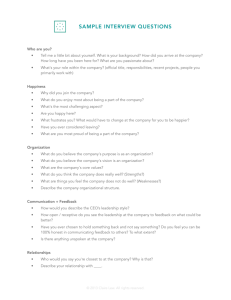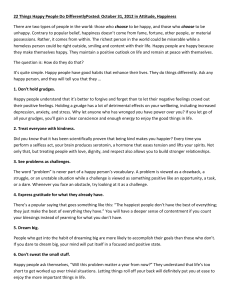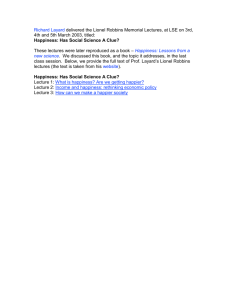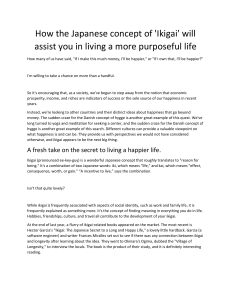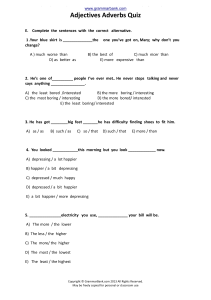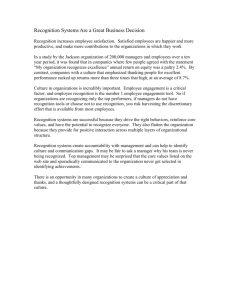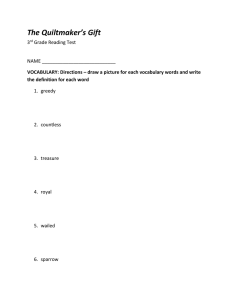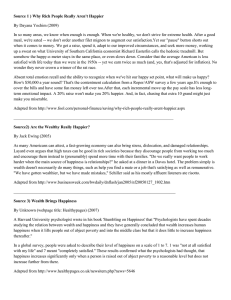Control & Happiness: Langer & Rodin Study Analysis
advertisement
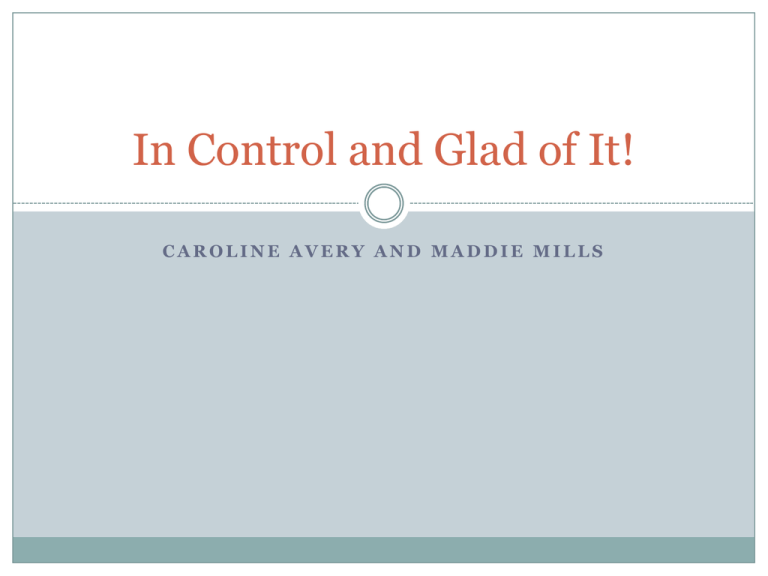
In Control and Glad of It! CAROLINE AVERY AND MADDIE MILLS Background Need to control: human nature Loss of control: anxiety, anger, outrage, etc. Happier with power to choose Old age: can’t make decisions for oneself Langer and Rodin Nursing home: more control, improved behavior Experiment Arden House Similar physical/psychological health, socioeconomic background, age 65 - 90 Message 4th Floor: care for themselves, decide how spend their time 2nd Floor: home wants to make lives more interesting Measure Outcomes 2 questionnaires Attendance of movie Jelly beans in jar Findings/Conclusions 4th Floor: Happier, more active, “improved condition”, alert, etc. More responsibility and decision making power, lives/attitudes improve Returned 18 months, long-term effects Historical Significance Power of control has effects on happiness and health, short and long-term Applicable Increase behavioral choice (personal and that of others) Controversy Unethical: well-being of participants Only 15% of 4th floor participants passed away 30% of 2nd floor participants passed away Recent Applications Krampe (2003): Study of depression lack of perceived freedom and personal choice predictors of depression Iyengar & Lepper (2000): Limited choices, versus a much wider variety (ie. 6 vs. 30) Less choices, but still having options is better Conclusion/Significance Personal power and control affect happiness and healthiness Increasing role of behavior helps one live happier and healthier Growing awareness can help make hospitals, nursing homes, and other institution settings require increased choice and personal power
